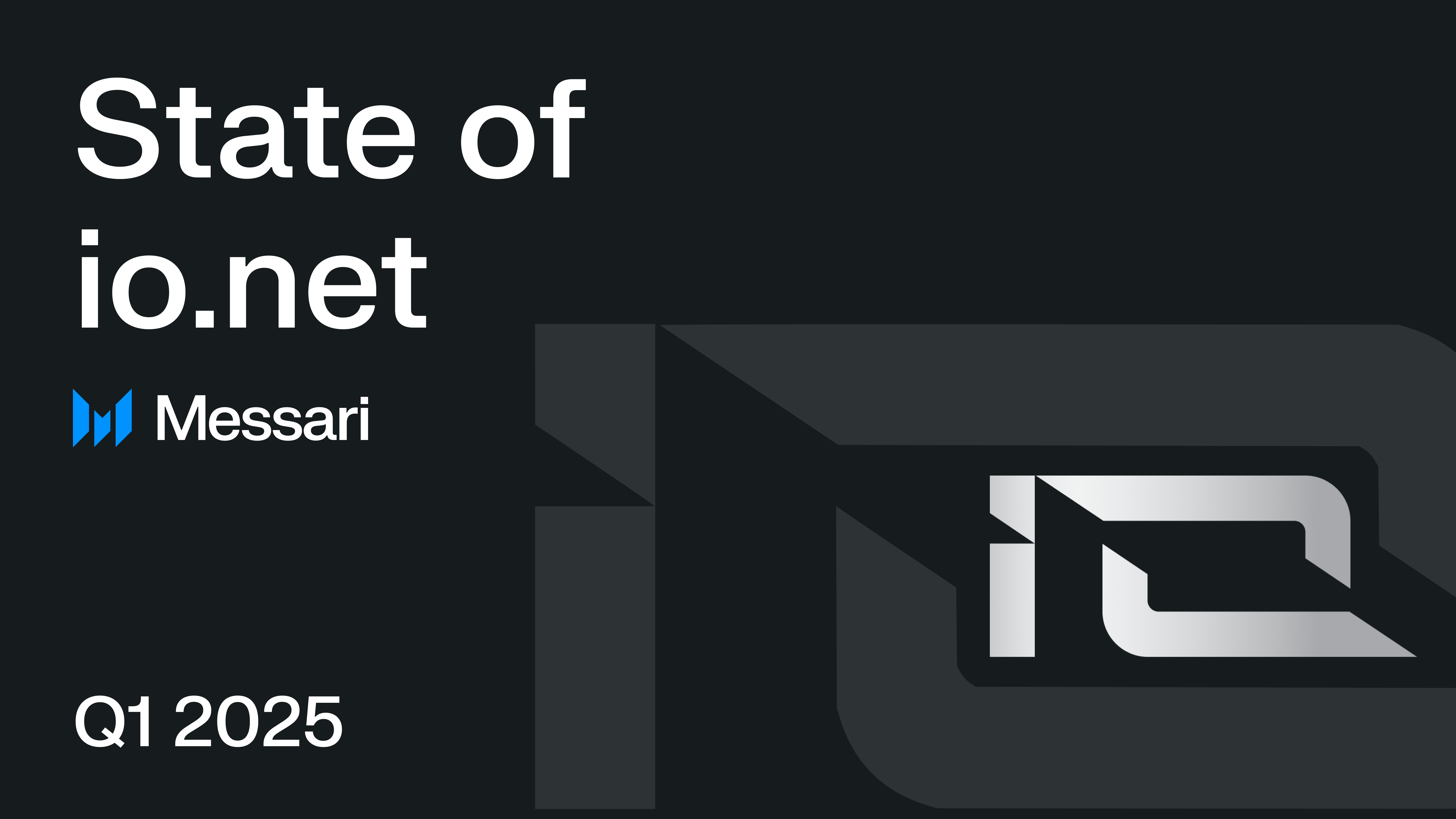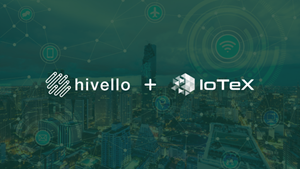Revolutionary Web3 Platform SNPad to List Token on Uniswap, Offers Paid Viewing Experience
Tuesday, June 4, 2024 12:00 PM
137

SNPad, a Web3 platform that pays viewers for watching commercials, is set to list its token on Uniswap on June 4, 2024. The platform uses AI and blockchain to deliver personalized ads to households, offering a more engaging and targeted advertising experience. Users can earn up to 70% of ad revenue in SNPAD tokens. SNPad aims to revolutionize TV advertising for the 1.72 billion global households, providing a new way for viewers to earn while watching commercials. The platform has already received accolades, including the ‘Best Blockchain Startup’ award at Crypto Expo Europe 2024.
Related News

3 days ago
Top Crypto Tokens to Watch in 2025: BlockDAG, Toncoin, Litecoin, and FilecoinAs 2025 approaches, the cryptocurrency market is abuzz with speculation about which tokens will emerge as top performers this year. Investors are shifting their focus from mere hype to tangible progress, adoption rates, and strategic market positioning. Among the frontrunners, BlockDAG is gaining significant attention, alongside established players like Toncoin, Litecoin, and Filecoin, each offering unique advantages worth monitoring.
BlockDAG is making waves with its ambitious exchange strategy, planning to list on 20 centralized exchanges on June 13. This aggressive move is not just about visibility; it signifies a readiness to expand its market reach. With over $273 million raised and a presale currently underway, BlockDAG has already sold more than 21.4 billion coins, yielding substantial returns for early investors. Its hybrid model, which combines DAG scalability with Proof-of-Work reliability, is attracting both developers and miners, positioning it as a serious contender in the crypto landscape.
On the other hand, Litecoin remains a reliable choice in the crypto sphere, known for its fast transactions and low fees. Its potential in cross-border payments is gaining traction, appealing to investors seeking a blend of legacy trust and future utility. Meanwhile, Toncoin benefits from its integration with Telegram, providing seamless access to millions of users and enhancing its adoption prospects. Lastly, Filecoin is carving out its niche in decentralized storage, catering to the growing demand for secure data solutions. Each of these tokens presents distinct opportunities, but BlockDAG's early momentum and strategic roadmap may give it the edge in the competitive crypto market of 2025.

4 days ago
Sungkyunkwan University’s AIM Lab Adopts Theta EdgeCloud for AI Research AdvancementSungkyunkwan University’s AI & Media Lab (AIM Lab), led by Professor Sungeun Hong, has become the 32nd academic institution globally to adopt Theta EdgeCloud, a decentralized GPU infrastructure tailored for AI and machine learning research. This partnership will significantly enhance the AIM Lab's capabilities in areas such as multimodal learning, domain adaptation, and 3D vision. Notably, their recent work, supported by Samsung, titled "Question-Aware Gaussian Experts for Audio-Visual Question Answering," has been accepted as a Highlight Paper at CVPR 2025, one of the most prestigious AI conferences. The integration of Theta EdgeCloud will allow researchers to access high-performance GPU resources on demand, facilitating faster iterations while reducing costs.
Professor Hong, an expert in multimodal AI and robotic perception, emphasizes the advantages of Theta EdgeCloud in providing the necessary computing flexibility to advance their research. The AIM Lab's focus on vision-language modeling and privacy-preserving domain transfer will benefit from the decentralized architecture, enabling rapid training and evaluation of models. The collaboration with Samsung further strengthens the lab's research output, showcasing a strategic relationship that enhances the development of impactful AI technologies.
The AIM Lab's recent achievements, including the innovative QA-TIGER model for video question answering and a memory-efficient attention mechanism for image segmentation, highlight the lab's commitment to cutting-edge research. By joining a network of esteemed institutions leveraging Theta EdgeCloud, such as Stanford and KAIST, Sungkyunkwan University is poised to lead in the advancement of AI innovation. This partnership not only accelerates research but also positions the AIM Lab at the forefront of developing socially relevant AI applications, demonstrating the power of academic-corporate collaboration in the tech landscape.

8 days ago
io.net Reports Revenue Growth Amid Market ChallengesIn the latest quarterly report, io.net has demonstrated significant growth in revenue, achieving an impressive 82.6% increase, which brought its total revenue to $5.7 million. This surge in revenue is particularly noteworthy given the broader contraction in the cryptocurrency market, where the market cap of its IO token plummeted by 71.4% to $108 million, alongside a 74.9% drop in token price. Despite these challenges, io.net has successfully integrated with various AI and compute-focused platforms, including partnerships with Zerebro, KREA, and Injective, aimed at enhancing decentralized GPU compute capabilities for applications in AI and DeFi.
The infrastructure of io.net, which is built on a decentralized network of GPUs and CPUs, allows for scalable access to compute resources, particularly for machine learning and AI applications. The platform supports a wide array of machine learning frameworks, ensuring flexibility and efficiency in resource allocation. However, the average daily verified compute resources have seen a decline, with verified GPUs and CPUs down 11.1% and 4.5% respectively. This reduction reflects ongoing supply-side challenges and a decrease in token incentives, which has impacted the overall activity within the network.
Despite the mixed performance metrics, io.net has maintained a steady pace of development, with numerous collaborations aimed at expanding its ecosystem. The partnerships formed in Q1 2025, including those with Alpha Network and Mira Network, highlight io.net's commitment to enhancing decentralized AI infrastructure. As the project continues to refine its economic models and expand its network capabilities, it remains a key player in the evolving landscape of decentralized compute resources, even amid a challenging market environment.

8 days ago
Ben Goertzel: Pioneering Decentralized AI for a Better FutureBen Goertzel, a pioneer in artificial intelligence, has been advocating for decentralized AI since he wrote his first line of code 30 years ago. As the world stands on the brink of achieving Artificial General Intelligence (AGI), Goertzel emphasizes the importance of decentralization in ensuring that this powerful technology benefits humanity rather than serving centralized powers. At the recent Consensus conference in Toronto, he expressed optimism that AGI could be launched within the next one to three years through his project, SingularityNET, which aims to create a global marketplace for AI services. The project has made significant strides, including partnerships with Mind Network and Filecoin Foundation, a $53 million investment in a modular supercomputer, and a token merger with Ocean Protocol and Fetch.ai.
Goertzel's vision for decentralized AI is rooted in his early experiences with the internet, which he initially saw as a decentralized platform. However, he notes that the rise of tech giants like Google and Facebook has led to a more centralized internet, which undermines the foundational principles of decentralization. He argues that for AGI to be a force for good, it must be built on decentralized architecture from the outset. This philosophy is reflected in the design of SingularityNET, Hyperon, and the upcoming ASI Chain, which is tailored for decentralized AI applications. Goertzel believes that the trajectory of the post-AGI era will significantly differ based on the role of decentralized ecosystems in its development.
In addition to his work in AI, Goertzel has a history of exploring decentralized money concepts dating back to the 90s. Although he and his peers initially dismissed the practicality of decentralized transactions due to concerns over speed and cost, the emergence of Bitcoin has validated some of his early ideas. He humorously reflects on the missed opportunities of that era, acknowledging that their lack of business acumen prevented them from envisioning the darker applications of decentralized money. Today, Goertzel's commitment to decentralized AI continues to gain traction, positioning him and his initiatives as key players in the evolving landscape of technology and governance.

9 days ago
IoTeX Launches Staking Program on DePINscan to Enhance User Participation in DePIN EcosystemsOn May 21, 2025, IoTeX, a prominent Layer 1 blockchain designed for decentralized physical infrastructure networks (DePIN), officially launched its Staking Program on DePINscan. This unified staking interface aims to empower users by providing a simplified and trusted gateway to support and earn from innovative DePIN ecosystems. The program initially offers native staking support for Hivello and Functionland, both of which are incubated by IoTeX, along with integrated staking for other projects like Filecoin, Fluence, Swan, and Aethir, in partnership with technical collaborator Parasail.
The launch of the staking program is a significant milestone as it aligns with the maturation of DePIN from a nascent concept to a fully developed industry. Qevan Guo, CTO and Co-Founder of IoTeX, emphasized that this initiative facilitates scalable user participation in real-world infrastructure projects. DePINscan is not merely a dashboard; it represents a gateway to the future of Web3 utility, providing visibility into over 100 projects and an ecosystem value exceeding $1 billion. With the introduction of native and cross-chain staking, token holders can now easily delegate to real-world networks, track rewards, and support aligned DePIN projects.
The integration of high-profile projects like Filecoin and Aethir highlights IoTeX's commitment to fostering open collaboration and chain-agnostic support. All staking operations are secured by Parasail’s robust infrastructure, ensuring reliability and scalability for future partners. Dom Carosa, co-founder of Hivello, expressed enthusiasm about the staking program, noting it as a significant opportunity for users to engage with decentralized infrastructure intuitively and rewarding. IoTeX plans to continue onboarding new projects and providing extensive support through marketing, infrastructure tools, and cross-chain integrations, inviting developers and builders to join their staking program.

10 days ago
Hivello's $HVLO Token Listed on DePINscan, Enhancing DePIN AccessibilityHivello, a decentralized physical infrastructure network (DePIN) aggregator, has announced the listing of its token $HVLO on DePINscan, a prominent analytics platform for DePINs on IoTeX. This strategic move is set to enhance Hivello's visibility within the DePIN and IoTeX ecosystems, allowing users to access information about Hivello and participate in staking directly on IoTeX's Layer 1 blockchain. With the DePIN market projected to grow significantly, this listing positions Hivello at the forefront of a rapidly evolving sector, catering to both crypto enthusiasts and newcomers interested in decentralized infrastructure.
The partnership with IoTeX is a pivotal development for Hivello, as it not only increases the accessibility of $HVLO but also provides users with essential tools and incentives to engage with decentralized networks. Domenic Carosa, Chairman of Hivello, emphasized the importance of this collaboration, stating that it aligns with their mission to onboard Web2 users into the Web3 space. The integration with DePINscan is expected to facilitate a smoother transition for users looking to explore and participate in the DePIN ecosystem, which boasts over 13 million active devices contributing daily.
As DePIN adoption accelerates globally, the collaboration between Hivello and IoTeX signifies a major step toward expanding participation in decentralized infrastructure. Qevan Guo, CTO and Co-Founder of IoTeX, highlighted that this launch represents a convergence of technical innovation and strategic partnerships, ultimately making DePIN more accessible to a broader audience. With the market anticipated to soar from $50 billion in 2024 to $3.5 trillion by 2028, Hivello is well-positioned to capitalize on this growth, fostering a new wave of participation in decentralized technologies.
Signup for latest DePIN news and updates